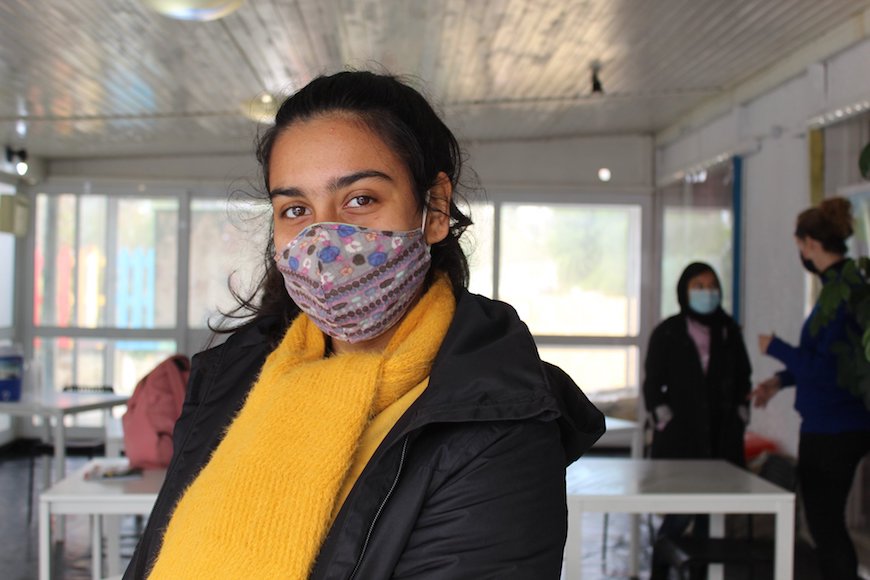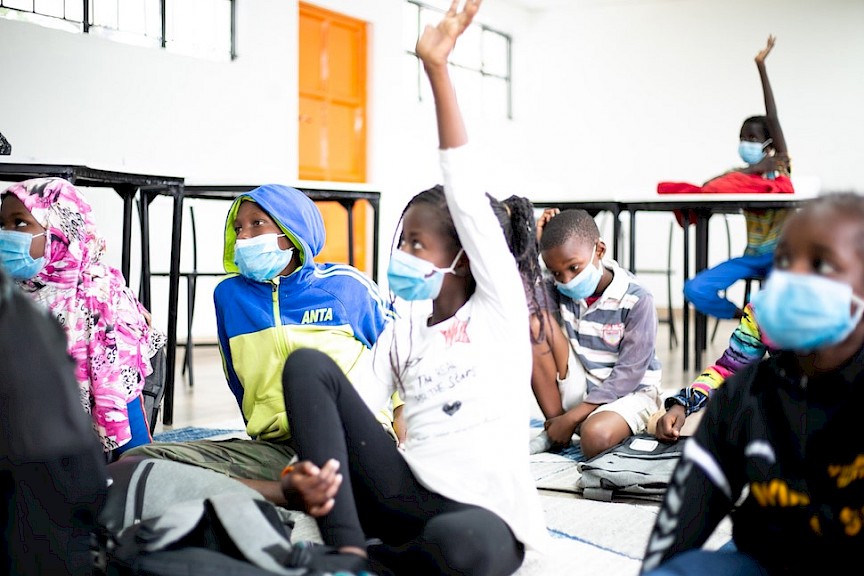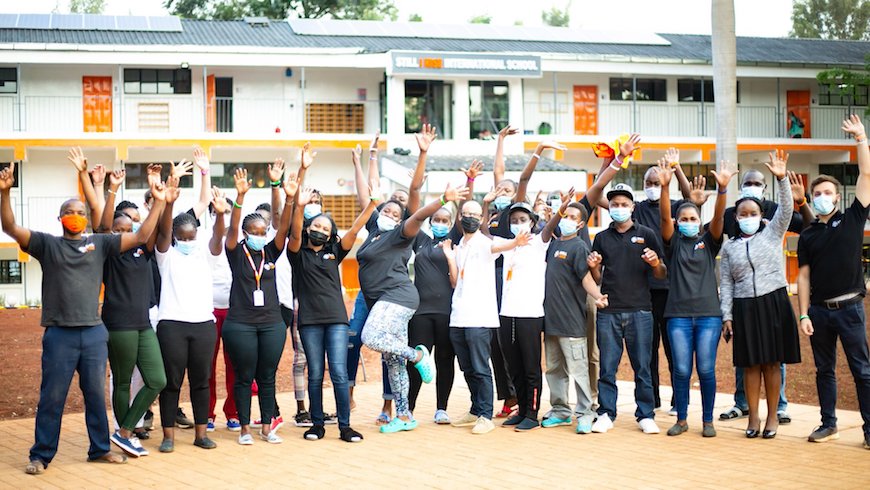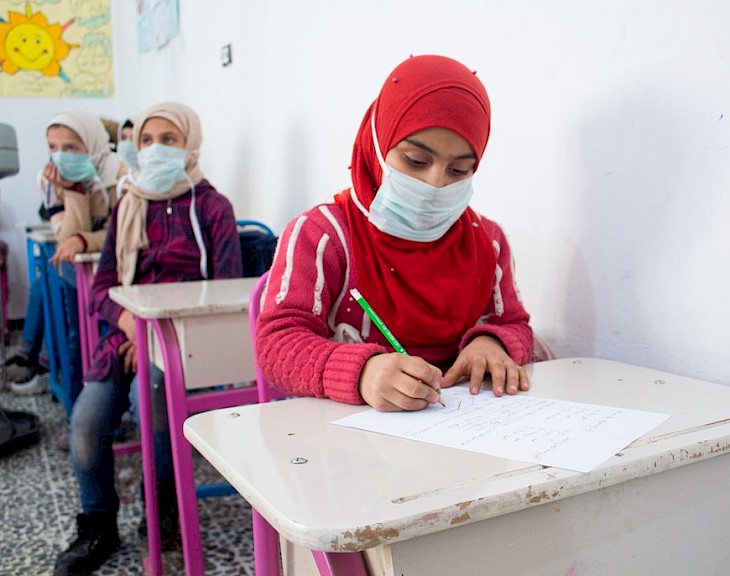
For thousands of Italian children, going back to school is a matter of few weeks. This year, the reopening of schools has generated particular discussion because of the pandemic: we are in a peculiar moment and it is important to pay attention. However, there is one aspect that we tend to take for granted: the very possibility of going to school and having access to high-quality education. While in the West we can enjoy the luxury of considering education a basic right and almost given, in many parts of the world the situation is radically different. This is the case at the junctions of migratory routes, where hundreds of minors arrive and stay for varying periods of time, often leading to an interruption of their studies.
The independent organization Still I Rise was founded in an attempt to resolve this "systemic void". "Still I Rise," explains Vanessa Cappella, press office and PR manager, "was born in 2018 on the island of Samos from the meeting of three volunteers through a local association: Niccolò Govoni, Sarah Ruzek and Giulia Cicoli." After noticing the worrying absence of an educational system, the three decided to create their own project "with the aim of providing education and protection to refugee children on the island of Samos." One of the pillars of the organization is independence: "we do not accept funds from governments, supranational organizations, the UN or the European Union". This makes it possible to operate in complete autonomy and to carry out work that is also a denunciation: in Samos, for example, "we have also denounced the mistreatment of unaccompanied minors," explains Vanessa. The project is funded by partnerships with companies and anyone who wants to contribute a donation through their website.

As for the education programs themselves, Still I Rise operates according to a two-pronged approach: in refugee centers or in junction areas where migrants tend to stay for less time, such as in Greece, but also in Syria and the Democratic Republic of Congo, "emergency and rehabilitation centers" are established, whose goal is to fill gaps and shortcomings in the system, to intervene by guaranteeing education together with practical and psychological support" and successively "to help the children to reintegrate into a state education system".
In places where the stay tends to be longer - such as Turkey and Kenya – Still I Rise opens actual international schools for refugee and vulnerable children. In Kenya, Still I Rise has recently achieved an extraordinary result: "the school in Kenya has been officially included in the International Baccalaureate (IB) circuit". This means being able to teach the IB program free of charge to all students: "we are the first non-profit organization in the world to offer such a course". It's a challenging seven-year program, "which will give students access to the best universities in the world".
The target age is always adolescents, where the lack of accessibility to education is more evident and relevant: "the primary age group is generally a little better cared after". All educators are certified teachers: "we are against improvisation". Selection made is through a process followed by the Human Resources department according to parameters established by the organization's internal education department.
Teaching is carried out in English, but all programs are designed according to the location of the school: "we operate only after a careful study of the area: we don't want to impose our own model, but rather study the reality of the place, establish partnerships and collaborations and have a good understanding of what the needs are. Then, on the basis of the needs that emerge, we personalize our model in relation to the context. In the school in Samos, for example, Greek is taught, and in all institutes special attention is paid to creating a synergy between the places and contexts from which the students come and local ones.

The latest project, currently underway, is the opening of a school in the Democratic Republic of Congo, in the southern region of Katanga, where many children are exploited to work in copper and cobalt mines. A 2014 UNICEF report estimates that about 40,000 children are engaged in cobalt mining, for pay of between one and two euros per day. According to Still I Rise's Director of Programs Sarah Evans, "The decision to begin operations in the Democratic Republic of Congo was surprisingly clear, as the undeniable violation of children's rights in mining regions is alarming. For us, this was a call to action to begin a new project, building on the success of our similar programs already operating in Greece and Syria; to provide a safe space for children, ensure they get the education they deserve, and support their families."
There is sometimes a tendency to look with distrust at initiatives like Still I Rise, as they stem from problems that may seem small and local. It's likely that opening a school won’t be the single, definitive solution to the problem of children literacy. What is certain, however, is that an independent and active organization like Still I Rise can be a powerful reference point - all the more so because it is based on a willingness to study and understand actual needs before helping. On the one hand it can inspire the development of similar projects, and on the other, most importantly, instill in young people the awareness that through culture and knowledge they can take a different path and build their own future.

In this sense, the story of Niccolò Govoni, one of the three founders, today President and Executive Director, is exemplary. Niccolò left Crema and Italy at the age of twenty and went on a humanitarian mission to India, where he stayed for four years and graduated in journalism. From there he continued on to Samos, where he met Sarah and Giulia and founded Still I Rise. The first school, Mazì, was opened there, followed by others in Turkey, Syria, Kenya and the next one in Congo. Niccolò was nominated for the Nobel Peace Prize in 2020 and won the CIDU Prize for Human Rights. In the meantime, he continues to follow his passion for writing by publishing several books, the profits of which contribute to financing Still I Rise.